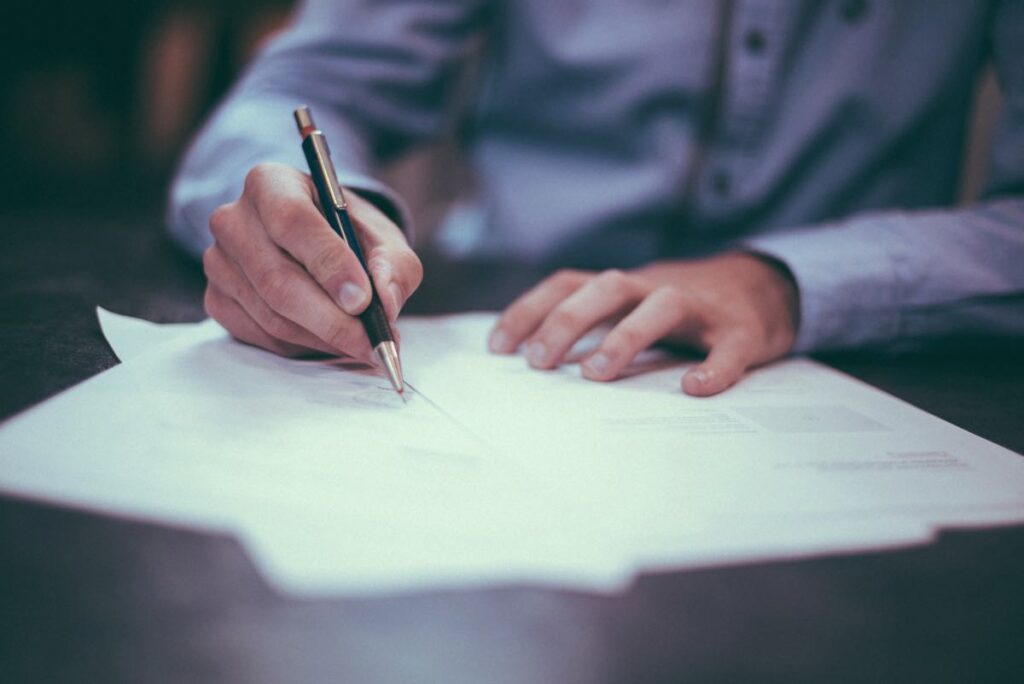
You’ve walked through countless houses and weighed the pros and cons of dozens of home features. You’ve made an offer on your dream home in the perfect neighborhood and had a professional inspect the property. They’ve accepted the offer! Now it’s time to wrap up the home sale and get ready to move into your dream home. Find out how to gather the right documents to make closing a breeze.
Get Approved for a Loan
While your realtor and title agency will work with you, it’s important that you understand the documents necessary to close on a home. If you don’t have the right paperwork, the entire home-buying process can grind to a halt.
One of the first things you need to do is consider whether you’re financially prepared and get approved for a loan. While you don’t have to be pre-approved for a home loan in order to be approved, this can make the process quicker and more convenient.
Here is some of the information you need in order to apply for a home loan:
- Proof of income
- Credit history
- Bank statements
- ID
- Renting history
- Tax returns
Review Loan Information
Once you’re approved for a mortgage, you don’t need to bring all this information to the closing with you, but you do need to review the full loan application at this point. Here are some helpful things to review to be sure you’re ready for closing on your dream property:
- The full funding amount: Does your mortgage cover the price you agreed to pay for the home? Know what your down payment needs to be as you prepare for closing on your property.
- Lender disclosures: Read your lender disclosures to understand the full agreement, including what happens if you miss a payment.
- The monthly cost of the mortgage: Know your monthly mortgage cost to ensure you’re financially ready for your home.
- Interest rate: A low interest rate can save you thousands over the course of the payoff period. Be willing to negotiate and shop around to save even half a percentage point of interest rate.
- Payoff period: Most mortgages have a 15-year or 30-year payoff. Know yours before signing the closing documents.
Gather Closing Documents
This isn’t the day to forget your wallet at home. You’ve probably signed plenty of documents and sent in important information before closing on your home, but there are still a few key items you must bring before you can sign the title and officially become a homeowner:
- Cashier’s check for closing costs, down payment, and any prepaid property taxes and interest
- Official photo ID
- Proof of homeowner’s insurance
- Closing disclosure for your mortgage
- Professional representation, like your real estate agent or lawyer
What Are Closing Costs?
It takes a lot of paperwork to legally transfer property. When you receive a mortgage and buy a home, the fees involved can be between 2% and 5% of the total loan. Here are some of the fees included in that total:
- Credit report
- Title search
- Transfer taxes
- Recording
- Origination
- Underwriting
- Appraisal
Why Should You Bring Professional Representation?
Closing day can seem like a celebration, but it’s also an important legal transaction. Never sign paperwork without your real estate agent, lawyer, or another professional representation present. A professional can help you avoid any unusual issues during the process.
Find Out How to Close on Your New Home
Don’t let a pile of paperwork dampen your excitement on closing day. You’re going to sign a serious amount of paperwork, so one way to prepare is to flex those signing muscles!
How Long Does Closing Take?
The actual meeting takes about an hour. To schedule closing, Ellie Mae reports that the average time was about 47 days in May 2020. Expect to wait a month or more after you receive an accepted offer before you can move into your new home.
What Documents Are Signs at Closing?
It can be easy to feel overwhelmed with all those signatures, so you may not realize at that moment what you’re signing. Be sure to carefully review the closing documents before signing them to avoid agreeing to terms you weren’t aware of. Here is a list of some of the most common documents you’ll sign:
- Mortgage note
- Mortgage agreement
- Loan estimate and closing costs
- Transfer tax declaration
- Deed
- Bill of sale
- Seller disclosure
What Happens at Closing?
Your real estate agent will inform you of the closing day and likely remind you of the items you need to bring along. Most of the closing event involves sitting in a comfortable building, reviewing documents, and signing in the necessary spaces. The sellers are also present, either in the same room or a separate room, signing the same paperwork.
The overall feeling on closing day is typically a celebration. Consider bringing a small gift for the seller or your real estate agent to thank them and end the process on a positive note. Most agreements give you possession of the property at closing, so you’ll usually receive the keys to your new home and be able to start unpacking right away!
Get Ready to Enjoy Your Dream Home
Stay excited about the home buying process as you prepare to sign a mountain of documents. Learn more about the home buying experience with a mortgage calculator and helpful advice from Home Buyer Guidance.










